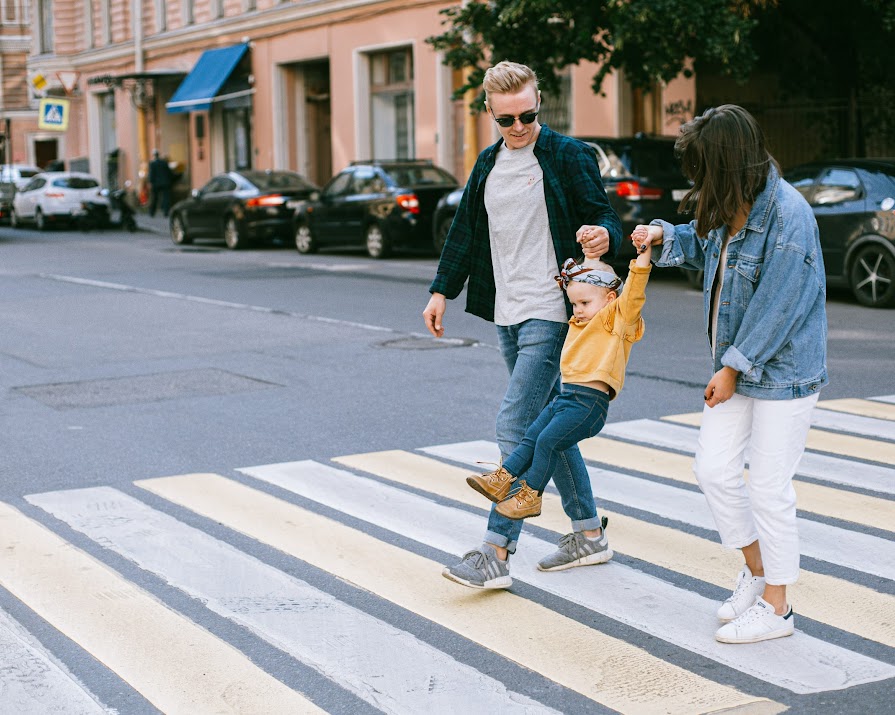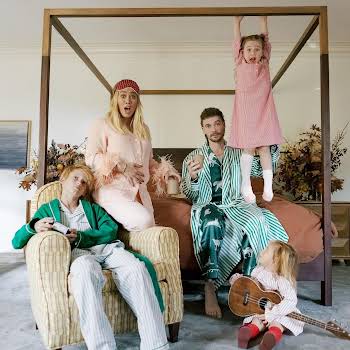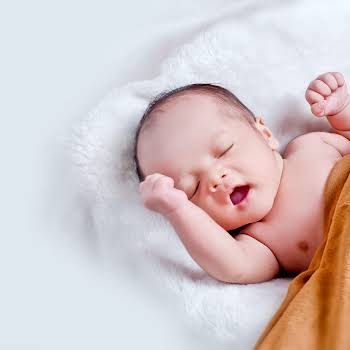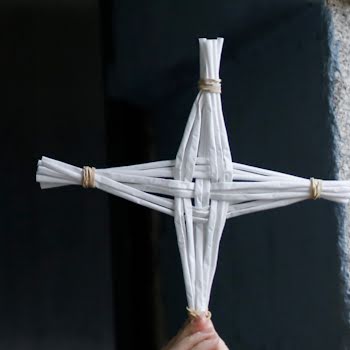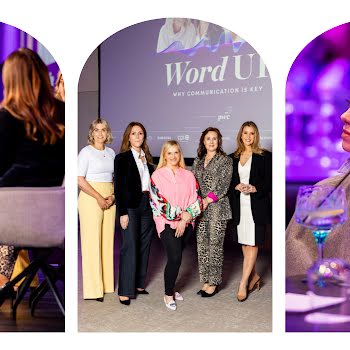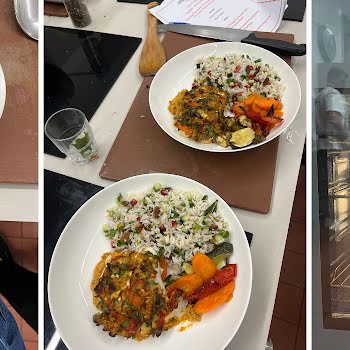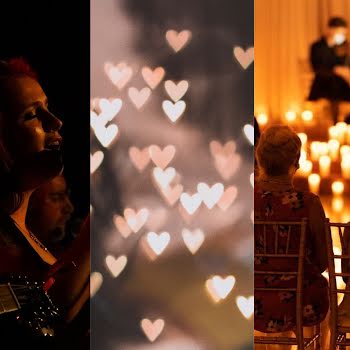
By Jordan Lillis
23rd Mar 2024
23rd Mar 2024
One in four adults factored climate change into their decisions to not have kids, plus there’s the impact of the housing crisis, rising childcare costs and career aspirations to consider.
I loved my BABY born.
I was five when she arrived on my lap, fresh off the back of Santa’s sleigh. Her cool, hard exterior was so smooth against my clammy hands and she smelt very faintly of something sugary. Her plastic face with puckered lips and sterile blue eyes spent a lot of time half stuck to the side of my cheek in awkward, infantile embraces. For all my enthusiastic ‘nurturing’, I can’t remember what I named her.
The next time I recall coming into contact with a baby (and loving it) was when I was 13 and had started babysitting for a cousin of mine. This time, of course, the child was real. Part of the appeal of babysitting was making the big trip into town for the night. I was given unlimited access to the treats cupboard (a tall one filled with wrappers of every colour), I had full and glorious control over the remote, and I could pick a takeaway from anywhere I wanted – within reason. HEAVEN. I also happened to find the whole experience of feeding this lovely, big-eyed baby a bottle calming and meditative, even though I may not have identified it at the time, and it felt good being entrusted with her safety. I always kept the monitor carefully close by and made regular tippy-toed trips into her room to check she was still sound asleep, her even little breaths mirroring the sound of waves in the distance.
Deep inside, underneath anything visible to the human eye, I always felt I wanted kids. I also always had friends who were sure they would never want them. They thought me a sap for my youthful obsession with BABY born (probably a fair observation in retrospect). We are lucky enough to live in a time, society and corner of the earth that allows us the freedom to make this decision, and while doing so, consider the implications of the decision carefully.
The decision to live child-free
People living child-free lives is nothing new – what’s a relatively newer concept is people living child-free lives out of fear for said child’s quality of life in the future. Factors like climate change, the housing crisis, high childcare costs, career choices and a change in attitude towards marriage and settling down in a post-Catholic society have affected the ages at which Irish millennials (among many others) are having children. But for those who don’t fancy it at all, surveys like this one prove one in four adults have factored climate change into their decisions to not have kids.
Having a child is seven times worse for the climate in CO2 emissions annually than the next 10 most discussed mitigants that individuals can do – Morgan Stanley analysts
The globe’s population has doubled since 1970 (it is currently hurtling towards 10 billion by 2050) and the vast majority of those babies will be born in Africa, where huge numbers of women are still having between four and 10 children without access to education and contraception – two factors proven to bring birth rates down. Here in Ireland, contraception was illegal from 1935 until 1980 under the rule of the Catholic church. My grandmother, who grew up in the mid-20th century, chatted to me about her own childhood and confirmed what we all know anecdotally. “Women didn’t have a choice in those days. You got married, you had a duty to your husband, and a duty to have children. That was the end of it,” she told me. Whether all of these women wanted to do this or not, rarely came into play – I’m sure in many cases, women didn’t even think too hard about what they wanted for fear of being predictably disappointed by the strong constraints and limitations in place.
As Africa’s population grows, birth rates across Europe, the US and Asia are in decline. While deciding to live child-free is one thing, there are also those who would like to have a child, but are struggling with how to make that happen.
Falling birth rates are less a choice than the poignant consequence of a set of unsavoury circumstances. What we have come to think of as ‘late capitalism’ has become hostile to reproduction – Anna Louie Sussman
We have a consumption problem
The global growth in population isn’t the only issue in relation to the climate – overconsumption in high-income countries is also a problem (I wonder where that BABY born ended up…). A group of economists, scholars and climate activists have recently drawn attention to the concept of “degrowth” – the idea being that more does not always equal better. The objective of degrowth as they see it is to put human life at the centre of economic systems rather than financial greed. Believers in degrowth do not think that every sector of a country’s economy must grow (for example, do we really need to keep growing arms or automotive industries?) If rich countries were to pursue this idea, they’d need to invest in the likes of universal basic income, a shorter working week, job guarantees and a scale-down of energy and resource use.
The peaceful choice to do what you want with your life
While we might have the immense privilege to be able to decide whether we want to live child-free or not, we need a collective shift in how we view, and speak to, women who make the choice not to have children. There is often an underlying sense of disbelief that a woman could be fulfilled without this experience. A friend of mine who is child-free says it’s usually other women who have the most trouble wrapping their heads around the concept. “They usually say something patronising, like – ‘You’ll probably change your mind!’ It’s like I’m making them personally uncomfortable, and it does make me wonder why. People like to have their own decisions validated by others’ actions I think.”
I want children. Given the chaotic uncertainties that dictate various parts of our millennial lives (whether single or not), I’m still unsure whether circumstances will allow me to have them – hopefully, but who knows? Although I face pushback from those who believe having a child in the times we are living in is a purely selfish act, I don’t think it’s anywhere near as strong as the judgment directed at child-free women – and how could it be when this country is still suffering a hangover from the years through which it was assumed having children was a woman’s only purpose?
The strong and upholding narrative around having a child in our society is often still about it being the “best thing” to ever happen to someone. What we must start to truly accept is that perhaps this is not always the case. Maggie Gyllenhaal’s recent adaptation of Elena Ferrante’s novel, The Lost Daughter, depicts a woman who genuinely struggles with the effect motherhood has had on her life. In a way, it tears her apart and leads her to make decisions that will impact her life forever. Is she the devil, void of compassion and goodness? Unfortunately for us, we can’t box her off that neatly. She’s human.
While we can all laugh off Pope Francis’s tone-deaf and frankly bizarre comments about the selfishness of choosing pets over children, I think it’s important, especially in the times we are living in, to remind ourselves that it is neither wrong to be child-free or to decide to have a child. Both options are there to be explored and, if you’re lucky enough, to have the choice between. Embrace it and pursue whatever it is that you want (within reason of course). You’ll only be here a short time so you may as well.
This is an updated version of an article originally published in 2022.











